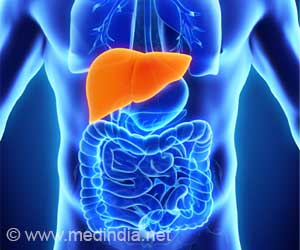Soft drinks like cigarettes and alcohol are harmful to health and should be avoided.
Water, water everywhere, but who wants water to drink when one can reach out for a carton of ‘softy’?
Aerated or carbonated drinks are a fad among the modern youth who associate these drinks with being ‘cool’. It would be prudent, though, to evaluate the features of these tempting beverages and weigh the consequences of indulging in them.Scientific studies have proved that consuming 1 to 1.5 litres of soft drinksa day can increase an individual’s susceptibility to numerous health problems, a few of which are discussed below.
Tooth Decay
People who consume three or more glasses of aerated soft drinks a day, stand a greater chance of tooth decay leading on to tooth loss. The high sugar content in the soft drinks provides a haven for bacteria, which attack the teeth and ushers in the decay. Besides, the acid content in the soft drinks destroys the teeth by corroding their enamel.
Extra Calories
Soft drinks are made up of filtered water, refined sugar and artificial additives and are completely devoid of any nutritional value. These drinks contribute to the calorie build- up because of their refined sugar content, resulting in weight gain in individuals who have crossed the line of moderate consumption.
Diet Drink
Are Diet Soft Drinks the ‘panacea to the pain’ called weight gain? Basic facts reveal that the soft drinks of the ‘diet’ category are stacked with aspartame (an artificial low-calorie sweetener), which multiplies hunger pangs and leaves the consumer craving for more!
The Food and Drug Administration (FDA) has made a move to stop foods containing aspartame to be tagged as 'weight reduction products’ choosing, instead, to label these products simply as 'Diet Drink' or 'Diet Food '.
Malady of the Malnourished
Some people who are addicted to soft drinks experience gastrointestinal disturbances coupled with a plummeting appetite. This in turn prompts them to avoid food leaving them victims of malnutrition, retarded growth and several other physiological problems.
Effect on Digestive System
Of all the organs that make up the digestive system, only the stomach has the ability to withstand a pH upto 2.0. Other organs, including the lining of the mouth, pharynx and esophagus are extremely sensitive to the presence of the acid in the soft drink.
It is commonly observed that acidity prompts a person to help himself to a soft drink in order to help calm the stomach. Some individuals do the same after a heavy meal. However, this practice is harmful as the phosphoric acid vies with the hydrochloric acid already present in the stomach and impairs its function leading to faulty digestion, bloating and gassiness. It would, therefore, do well for individuals suffering from acidity to avoid soft drinks.
Osteoporosis and Fractures
The Phosphoric acid, present in carbonated soft drinks is extremely toxic as it deoxidizes the blood.
This acid is employed in detergent manufacturing industries to produce water softeners that remove Ca²+ and Mg²+ ions from hard water. It carries out a similar function within the human body too and removes calcium from within the bones causing osteoporosis, a condition, which makes the bones porous and brittle and prone to fractures.
Stoned out kidneys
The minerals (calcium) from the bones pass out in the urine and makes the kidneys more prone to stone formation (Nephrolithiasis).
The phosphoric acid content in the soft drinks slows down the kidneys, which are unable to handle the excess acid.
Sallow Skin
Excessive intake of these aerated drinks results in a reduction of water and fresh juice intake and, in essence, robs the person of ingredients that are vital for a healthy skin. As a result the skin becomes wrinkle-prone, sallow and begins to show signs of ageing.
Effect of Caffeine
In the majority of the aerated, carbonated beverages, caffeine is an add-on ingredient that is deliberately used for its addictive properties. The caffeine, in these drinks is more readily absorbed by the human body than that in other drinks such as coffee or chocolate.
Some of the properties of caffeine that cause grave health concern are the following-
- It is a stimulant that could affect the functioning of the nervous system and disturb sleep.
- When sleep is disturbed, the body produces C - reactive protein which has a role to play in inducing heart disease.
- It worsens premenstrual syndrome.
- It causes dehydration and aggravates hyperacidity
Be Warned
‘Soft drinks’ like cigarettes and alcohol are best avoided. They are popular because they quickly become addictive.
- If you have a choice between aerated drinks or fresh fruit juices – order the juice.
- Don’t sip soft drinks but drink it from a straw. This keeps the contact with teeth to minimum.
- Keep an eye on your children who are more prone to excessive abuse of soft drinks leading to health problems.
Avoiding harmful food items can drastically minimize an individual’s chances of developing chronic illnesses. It would do well for all to follow a healthy dietary habit to live long, useful lives.
Source-Medindia
DR.REEJA THARU/P









